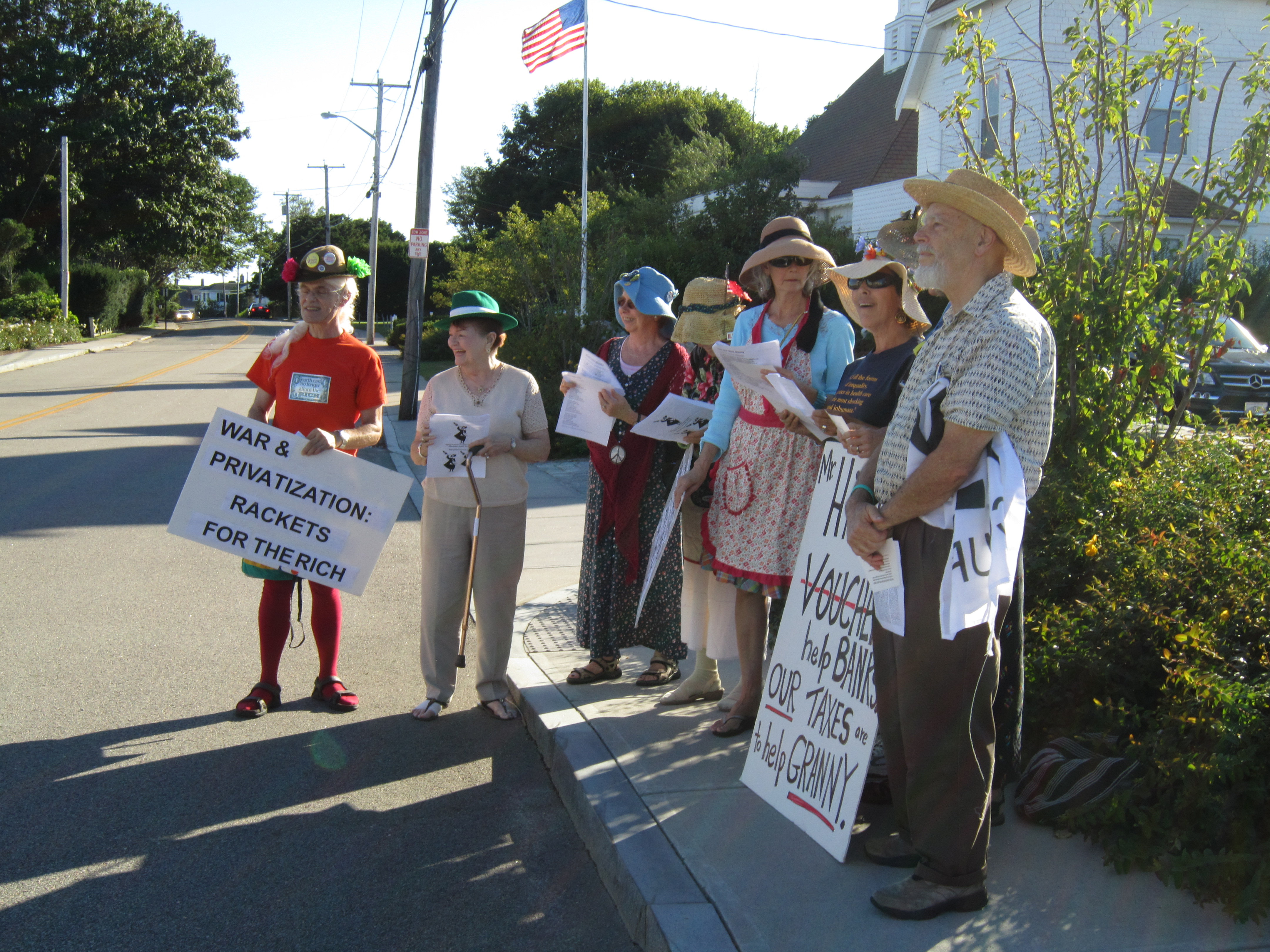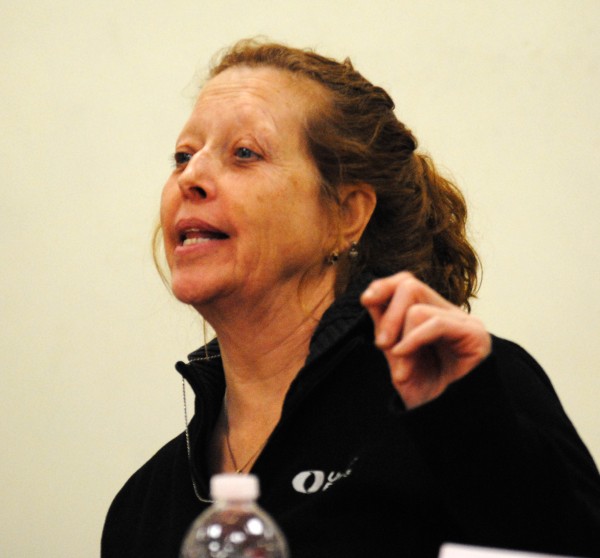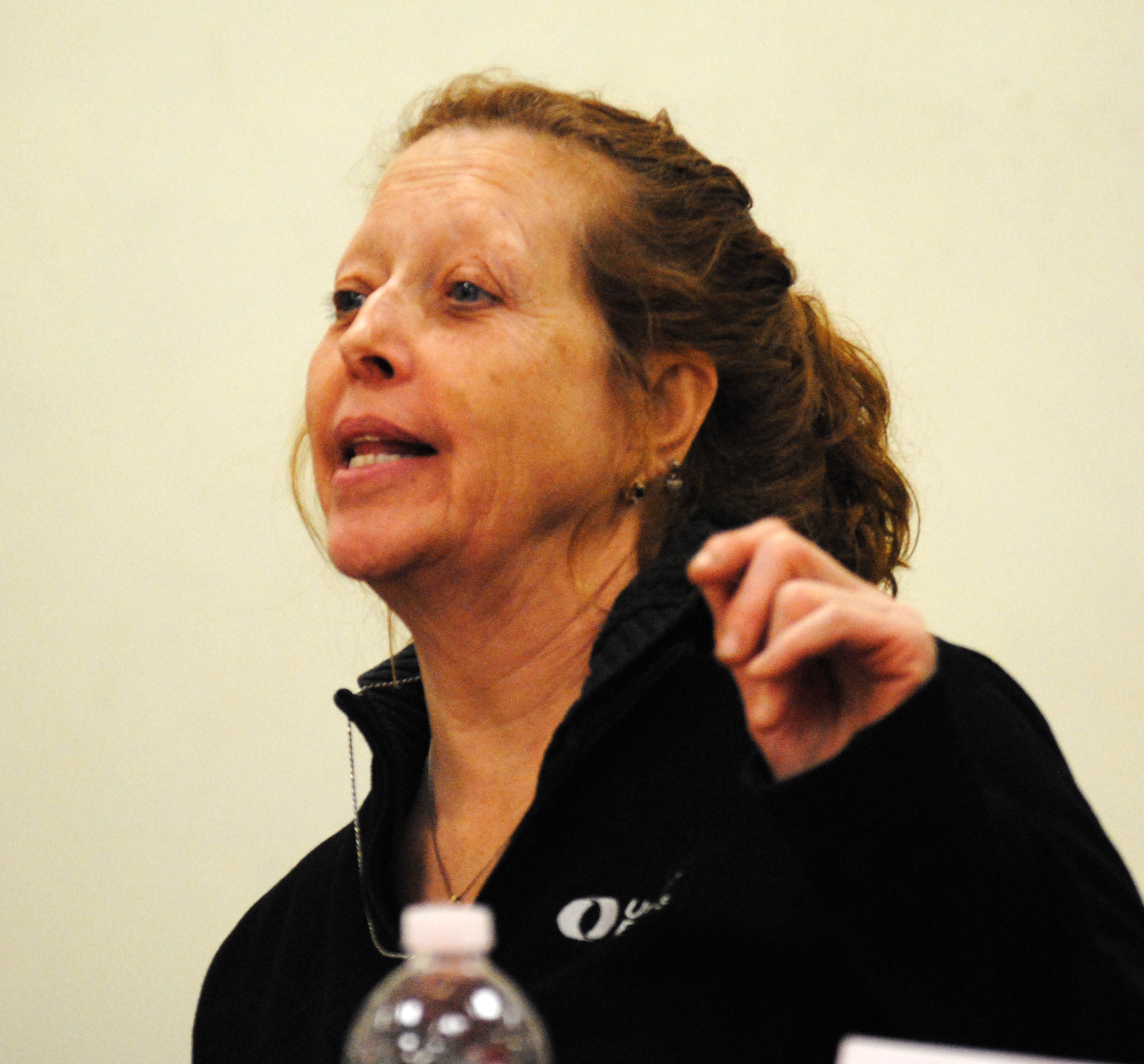Deprecated: Function get_magic_quotes_gpc() is deprecated in
/hermes/bosnacweb08/bosnacweb08bf/b1577/ipg.rifuturecom/RIFutureNew/wp-includes/formatting.php on line
2448
Deprecated: Function get_magic_quotes_gpc() is deprecated in
/hermes/bosnacweb08/bosnacweb08bf/b1577/ipg.rifuturecom/RIFutureNew/wp-includes/formatting.php on line
4387
Deprecated: Function get_magic_quotes_gpc() is deprecated in
/hermes/bosnacweb08/bosnacweb08bf/b1577/ipg.rifuturecom/RIFutureNew/wp-includes/formatting.php on line
4387
“What do I know that would cause me, a reticent, Midwestern scientist, to get myself arrested in front of the White House protesting? And what would you do if you knew what I know?” With these questions James Hansen opens his riveting presentation Why I must speak out about climate change on TED. Hansen, whom the Bush administration tried to silence in one of their numerous attempts to change reality by denial, is known for his 1980s congressional testimony in which he started raising awareness of global warming and its threat to the biosphere.
I too start with questions: “What would cause us, upstanding seniors, to stand on street corners, dressed like fools, singing songs with our own, supposedly epoch-making Raging Granny lyrics? And, you who know what we know, what are you doing?”

Raging Grannies protesting. (Photo by Danielle Dirocco)
What, in fact, do I know that deeply concerns my inner scientist-grandfather? As Hansen explains, greenhouse gasses cover the Earth with a blanket that makes it absorb more solar power than it radiates back into space. To restore the energy balance, the Earth heats up as required by laws of physics, laws soon to be repealed by an ALEC inspired legislature near you.
Let Hansen speak:
The total energy imbalance now is about six-tenths of a watt per square meter. That may not sound like much, but when added up over the whole world, it’s enormous. It’s about 20 times greater than the rate of energy use by all of humanity. It’s equivalent to exploding 400,000 Hiroshima atomic bombs per day 365 days per year. That’s how much extra energy Earth is gaining each day. This imbalance, if we want to stabilize climate, means that we must reduce CO2 from 391 ppm, parts per million, back to 350 ppm. That is the change needed to restore energy balance and prevent further warming.
Those of us who are not addicted to this so-last-century medium called TV know the problems caused by global warming, but not all may realize the magnitude and frequency of the extremes that have ravaged the Earth during the last decades. Yes, we have seen the heat waves, the droughts, the wild fires, and the record breaking hurricanes and typhoons. But nothing is more variable than the weather! So, why should we be worried by a list like this? Indeed, no particular item is anything new under the Sun, but new is the frequency of extreme weather events. Hansen and coworkers[1] did the statistics and found —emphasis mine— that:
An important change is the emergence of a category of summertime extremely hot outliers, more than three standard deviations (3σ) warmer than the climatology of the 1951-1980 base period. This hot extreme, which covered much less than 1% of Earth’s surface during the base period, now typically covers about 10% of the land area. It follows that we can state, with a high degree of confidence, that extreme anomalies such as those in Texas and Oklahoma in 2011 and Moscow in 2010 were a consequence of global warming because their likelihood in the absence of global warming was exceedingly small. We discuss practical implications of this substantial, growing, climate change.
How does the focus-group driven world of denial, aka American politics, respond to this string of disasters? In an interview with Jessica Sites of In These Times indefatigable Amy Goodman of Democracy Now!’ comments:
We are the ones making that connection; the corporate media does not. In all three debates between Barack Obama and Mitt Romney, do you know how many times the words ‘climate change’ came up? None.
Am I the only one who thinks that these so-called leaders should be tried for complicity in a conspiracy to commit genocide? It seems that to those of us who do not have their brains washed by the Supreme Courtisans of the Corporate States of America this should be a clear a case:
Article II of the Convention on the Prevention and Punishment of Genocide: “(c) Deliberately inflicting on the group conditions of life calculated to bring about its physical destruction in whole or in part;”
“Group” here refers to that half of humanity who cannot afford privatized, distilled water, and filtered, cold air, to be sold by the Corporations of Mass Destruction that own government.
Oh well, those ElecToon debates took place before we won the elections, which, as we all know, ended in a mandate for change, as they always do. Yet, somehow, we are wasting time on inane fiscal cliff theatrics. Why? To further the bipartisan program of shredding the social contract by unbridled privatization and imperial overreach, brought to us by the “world’s best military.” Indeed, as Major Ralph Peters describes it: “The de facto role of the US armed forces will be to keep the world safe for our economy and open to our cultural assault. To those ends, we will do a fair amount of killing.”
Chief Sitting Bull (Tatanka Iyotake) diagnoses this sick conduct of the “developed” world like this:
Strangely enough, they have a mind to till the soil, and the love of possessions is a disease in them. These people have made many rules that the rich may break, but the poor may not! They have a religion in which the poor worship, but the rich will not! They even take tithes of the poor and weak to support the rich and those who rule. They claim this mother of ours, the Earth, for their own use, and fence their neighbors away from her, and deface her with their buildings and their refuse. They compel her to produce out of season, and when sterile she is made to take medicine in order to produce again. All this is sacrilege.
You can find this quote in Days of Destruction Days of Revolt, Chris Hedges’ and Joe Sacco’s agonizing account of their travels in “sacrifice zones,” those areas ruined in the name of unbridled profit, progress, and industrial advancement. This exchange between
Chris Hedges and Bill Moyers sums it up perfectly:
CHRIS HEDGES: There’s no way to control corporate power. The system has broken down, whether it’s Democrat or Republican. And because of that, we’ve all become commodities. Just as the natural world has become a commodity that is being exploited until it is exhausted, or it collapses.
BILL MOYERS: You call them sacrifice zones.
CHRIS HEDGES: Right.
BILL MOYERS: Explain what you mean by that.
CHRIS HEDGES: Well, they have the individuals who live within those areas have no power. The political system is bought off, the judicial system is bought off, the law enforcement system services the interests of power, they have been rendered powerless. You see that in the coal fields of Southern West Virginia.
[…]
And when we flew over the Appalachians, and it’s a terrifying experience, because you realize only then do you realize how vast the devastation is. Just as when we were both in the war in Bosnia, you couldn’t grasp the destruction of ethnic cleansing until you actually flew over Bosnia, and village after village after village had been razed and destroyed.
And the same was true in the Appalachian Mountains. And these people are poisoned. The water is poisoned, it smells, the soil is poisoned. And the people who are making tremendous profits from this don’t even live in West Virginia—
Of course, the World according to Peabody Coal Company and Bechtel Corporation, assisted by their flunkies of government by and for the Ruling Class was documented in Broken Rainbow(1985). Libraries have been filled with accounts of our colonial exploits. Indeed, in 1860 the Dutch writer known by his pen name Multatuli wrote about the former Dutch colonial sacrifice zone, today’s Indonesia, and lamented: “I told you, reader, that my story is monotonous.” Therefore, let us sing Songs of Rage by Grannies Marlies and Paige, and the Raging Grannies of Greater Westerly:
Miner’s Lament
(Tune of My Darling Clementine)
In the cabins
In the canyons
Live our families on the dole
They have asthma
They have cancer
And the wind blows black as coal
Oh my homeland
Oh my homeland
Oh my Blue Ridge Mountain home
Once I was a simple miner
Now the mountain tops are gone
With the treasures
In our valleys
We should all be millionaires
Corporations took our profits
Left the landscape scarred and bare
Oh my homeland
Oh my homeland
Oh my Blue Ridge Mountain home
You are lost and gone forever
And the mountain tops are blown
(right off!) |
Fiscal Cliff Talk
(Tune of Little Boxes)
Fiscal cliff talk as the globe warms,
Fiscal cliff talk as they dilly dally,
Fiscal cliff talk on the bube tube,
Fiscal cliff talk is a scam.
There’s the wild fires and the dust bowl,
And the heat waves and the hurricanes,
And the pols seem but to dilly dally,
And they all want just the same.
Fiscal cliff talk on the bube tube,
Fiscal cliff talk but to dilly dally,
Fiscal cliff talk, fiscal cliff talk,
Fiscal cliff talk is a scam.
There’s the Blue Dogs and the Red Dogs,
And the Dem talk and the Repub talk,
And they all seem but to dilly dally,
And they all want just the same.
See the people on the bube tube
Carry water for the ruling class,
Medicare cuts, Medicaid cuts,
Payoffs for gigantic greed.
And there’s home loans and there’s student loans,
And the debt collectors agencies,
‘Cuz the rich need their entitlements.
Let the common good be damned!
With austerity and with deep cuts,
They shall tear up social safety nets.
For all drama ’bout posterity,
Fiscal cliff talk is a scam.
With their pipelines and their tar sands,
They will sell off the environment,
But they don’t care ’bout posterity,
As they buy and sell the Earth.
|
1. Hansen, J., Mki. Sato, and R. Ruedy, 2012: Perception of climate change, Proc. Natl. Acad. Sci., 109, 14726-14727, E2415-E2423, doi:10.1073/pnas.1205276109.









